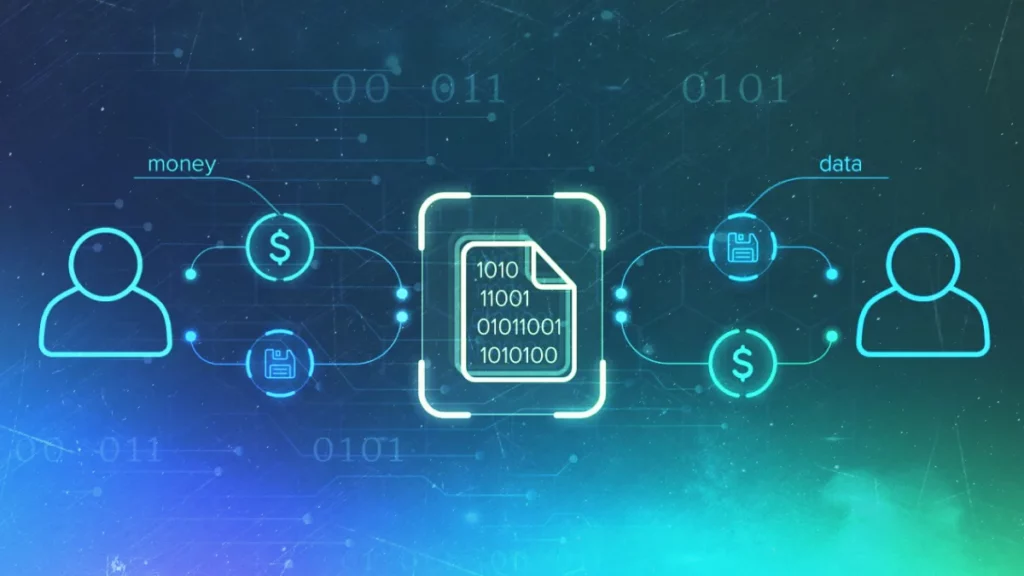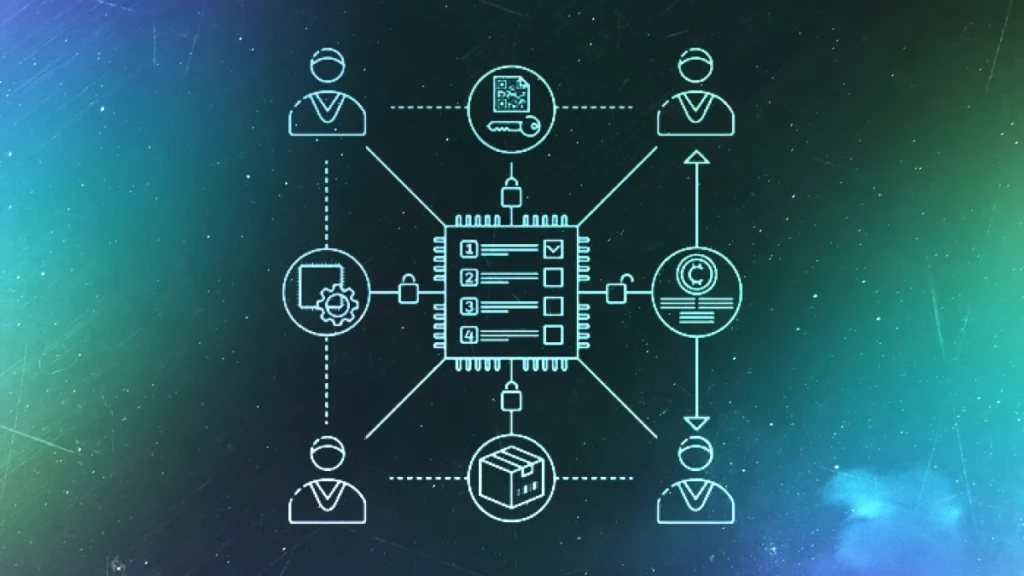
Smart contracts have emerged as a groundbreaking innovation within the realm of blockchain technology, significantly transforming the way transactions and agreements are executed. In this article, we will delve into the essence of smart contracts, their integration with blockchain technology, and how they play a pivotal role in enabling on-chain task execution.
What is a smart contract?

A smart contract can be best described as self-executing, programmable code that automatically enforces and executes the terms of an agreement when predefined conditions are met. Unlike traditional contracts, smart contracts are digital and operate on a decentralized blockchain network. They have garnered immense attention for their ability to facilitate trustless, transparent, and tamper-resistant transactions.
Smart Contracts and the Blockchain
Smart contracts are inherently intertwined with blockchain technology. They reside on the blockchain and harness the data and assets stored within the ledger. This symbiotic relationship ensures the security and immutability of smart contracts since any alteration or manipulation necessitates consensus from the majority of network participants.
The execution of smart contracts on the blockchain occurs without human intervention. When specific conditions encoded within the contract’s logic are satisfied, the contract automatically triggers the predefined actions. For instance, in a real estate transaction, a smart contract can facilitate the transfer of property ownership upon receipt of the agreed-upon payment, ensuring that both parties fulfill their obligations without relying on intermediaries.
Advantages of Blockchain Smart Contracts

- Decentralization: Smart contracts operate within a decentralized network, eliminating the need for a central authority or intermediary. This decentralization contributes to greater transparency and trust.
- Transparency: Every transaction and action performed by smart contracts is recorded on the blockchain for all participants to see. This transparency mitigates disputes and ensures accountability.
- Security: The immutability of blockchain technology makes smart contracts highly secure. Once deployed, they cannot be altered or tampered with, enhancing the integrity of agreements.
- Efficiency: By automating the execution of agreements, smart contracts reduce the time and costs associated with traditional contract management. This efficiency is particularly beneficial in industries requiring swift and precise execution, such as supply chain management.
- Cost Reduction: Smart contracts eliminate the need for intermediaries, lawyers, or notaries, reducing administrative and transactional costs.
Applications of Blockchain Smart Contracts

Blockchain smart contracts find utility across a myriad of industries and use cases, including:
Financial Services: Smart contracts facilitate automated, secure transactions, enabling the creation of decentralized financial instruments like decentralized exchanges (DEXs) and lending platforms.
Supply Chain Management: Tracking the provenance of goods, ensuring product authenticity, and automating inventory management are made more efficient with smart contracts.
Healthcare: Patient records, insurance claims, and medical research can benefit from the secure and interoperable nature of smart contracts.
Legal and Real Estate: Automating the transfer of property titles, escrow services, and even legal agreements can streamline processes in these sectors.
Governance: Voting and decision-making within organizations can be conducted transparently and securely through blockchain-based smart contracts.
Smart contracts have emerged as a transformative force within the blockchain ecosystem. Their ability to autonomously execute agreements, reduce reliance on intermediaries, enhance security, and increase transparency makes them a cornerstone of blockchain technology’s potential. As industries continue to explore their applications, smart contracts are set to revolutionize how tasks and transactions are executed on the blockchain, paving the way for a more efficient and trustless future.
